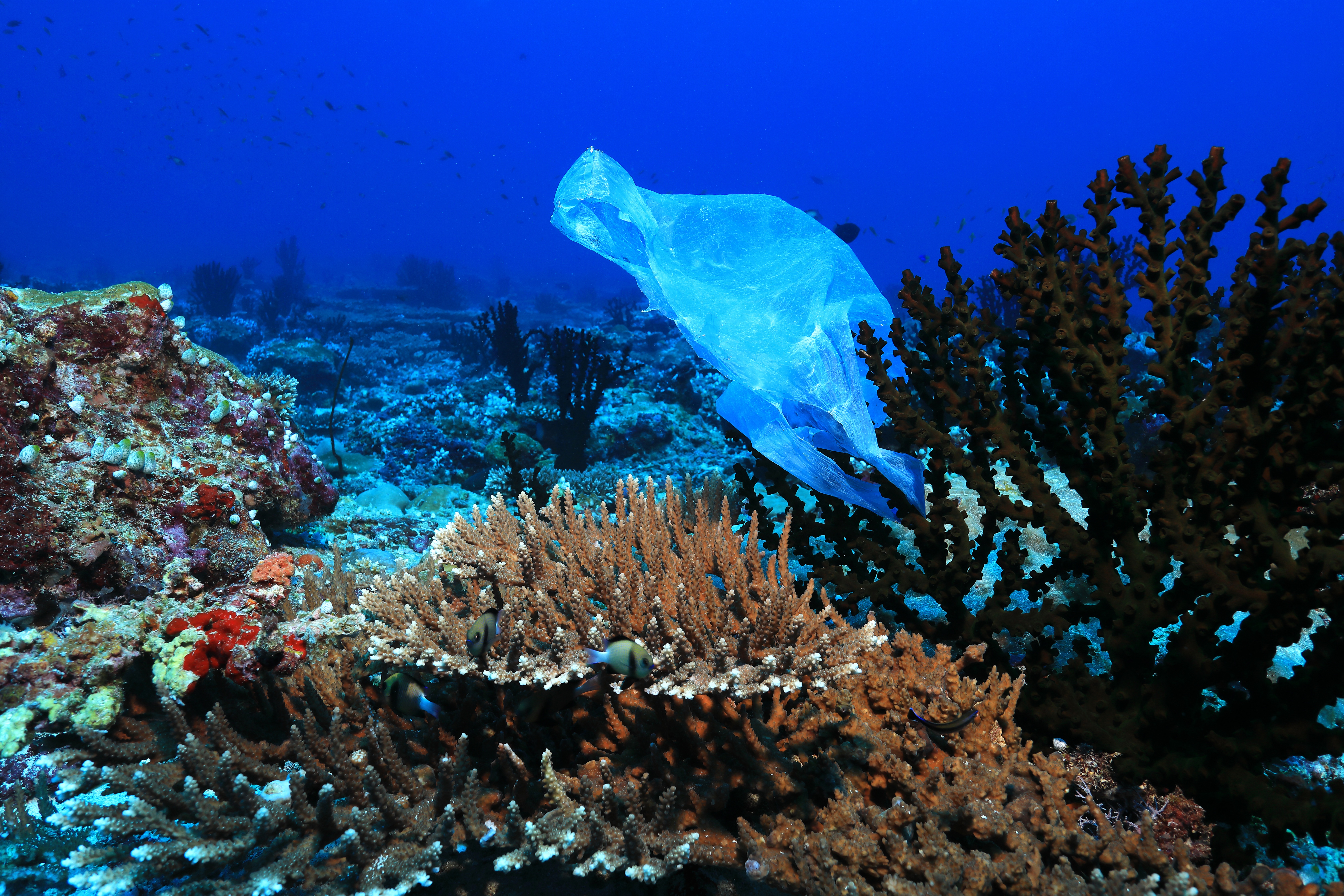As the oceans teem with plastic, Fr Séan McDonagh calls for a ban on single use plastic and for a change in the way plastics are produced and used.
We need to recognise the extraordinary damage plastic poses to our oceans. Dame Ellen MacArthur is a record-breaking sailor who has seen more of the oceans than almost anyone else. After a recent study, she suggested that we must stop dumping plastic into the oceans. If we don’t, there will be more plastic than fish in the oceans by 2050.
According to the MacArthur report, we dump at least 8 million tonnes of plastic into the ocean each year. This is the equivalent of tipping one garbage truck of waste into the ocean every minute. If no action is taken, this is expected to increase to two per minute by 2030 and four per minute by 2050.
McArthur believes that the plastic industry needs to clean-up its act. Dr Martin R Stuchtey is a member of the McKinsey Centre for Business and Environment which supports a circular economy. He helped produce the report.
In it he states, “plastics are the workhorse material of the modern economy, with unbeaten properties. However, they are also the ultimate single-use material. Growing volumes of end-of-use plastics are generating costs and destroying value to the industry.” After all, one-use plastics could, with circular economy thinking, be turned into valuable feedstock.”
MacArthur has a vision for a “new plastics economy” in which the industry, governments and citizens will work together to ensure that plastics never become waste. In her opinion, “linear models of production and consumption are increasingly challenged by the context within which they operate, and this is particularly true for high-volume, low-value materials such as plastic packaging.”
But this vision is not shared by plastic manufacturers or even governments. At a conference on our oceans held in Malta on 5-6 October 2017, the EU ruled out penalties on single-use plastic products, in favour of raising public awareness of the damage consumer plastics are doing to the world’s oceans.
According to Frans Timmermans, who is the vice president of the European Commission, taxing plastic is “not sustainable”. We should change the way plastics are produced and used.
In the early 1990s, I returned to Ireland from the Philippines and was on the board of Greenpeace, Ireland. Each year we asked a government minister to impose a tax on single-use plastic bags. We were told by politicians and retailers that this would not work because plastic bags were central to modern shopping habits.
Ireland as a country would lose out if it put a tax on plastic bags while there was no tax in the United Kingdom. Then in 2002, Ireland became the first country to impose a plastic bag levy. This led to a 90% drop in the use of plastic bags, with one billion fewer bags used. It generated €9.6 million for a green fund supporting environmental projects. In addition, there is now much less roadside litter from plastic bags.
So a levy on plastic reduces waste. Mr Timmermans suggests that public information campaigns are vital. It is manufacturers and retailers who have flooded the shops with plastic. In most shops fruits, vegetables, meat, fish and drinks are wrapped in plastic, or placed in a single-use plastic container.
No matter how good your information campaign is, the shopper is not going to ask the person on the till whether he or she can pour the contents of a plastic bottle into a glass bottle.
We need information and a tax that will change the behaviour of manufactures and retailers alike. In fact, in the run-up to the 2017 Budget, the Irish Government had been told to consider introducing new taxes, similar to the plastic bag levy, on disposable fast-food containers, cans and plastic bottles.
This has not happened, possibly because of the lobbying power of the recycling industry. Polystyrene fast food containers have been banned in San Francisco, Toronto and Paris.
At the 2017 Our Ocean conference in Malta, Jeremy Darroch, CEO of SKY Media, announced radical plans to remove all single-use plastic by 2020. By the end of 2017, all products will be made without plastic that is used once and then thrown away. SKY will also help their business partners and suppliers transform their operations.
In many parts of the world, religious congregations, dioceses and parishes have begun to cease investing in fossil fuel companies because of climate change concerns. In the light of Pope Francis’ encyclical on the environment, Laudato Si’, (159) Christian groups should be at the forefront of those who are trying to protect the oceans from becoming a plastic sink.
Every parish, every school, ever diocese should emulate SKY by removing all single-use plastics by 2020. They should also initiate campaigns locally, in order to help people understand the threat that the global oceans face now and in the immediate future.
Like SKY, they should work with their suppliers so that they, too, can transform their operations. In many religious houses, food preparation is now provided by multinational companies. These companies need to be brought into the conversation in our efforts to ban single-use plastic.
This campaign is essential because, the ocean where life began and thrived for billions of years before it colonised the land, is seriously threatened and it is my generation which has done it.
Fr Sean McDonagh is an expert on climate change and ecology. His most recent book is ‘On Care for Our Common Home: Laudato Si’, Orbis Books, 2016.

